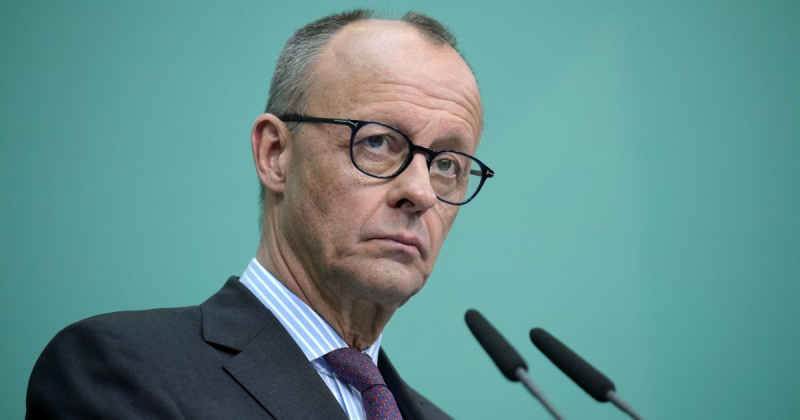Trade tensions between the US and the EU are not only a threat to the economy, but also to support for Ukraine. Chancellor Merz is trying to maintain a balance.

German Chancellor Friedrich Merz is doing everything possible to avoid a trade war between the United States and the European Union.
Roman Goncharenko, a Deutsche Welle observer and parliamentary correspondent in Berlin, stated this on air at KIEV24.
Merz is trying to maintain transatlantic unity to avoid any negative impact on aid to Ukraine.
In particular, we are talking about the threat of a new tariff or customs dispute between Washington and Brussels, which, in the opinion of the German side, could have a strong impact not only on the EU economy, but also on defense support programs for Kyiv.
“Friedrich Merz is doing everything to convince the American side, including Donald Trump, not to stop military aid to Ukraine. Europe is even ready to pay part of the costs,” Goncharenko noted.
According to him, Merz managed to avoid a serious geopolitical crisis at the NATO summit in The Hague. The US did not leave the Alliance, and support for Ukraine, albeit intermittently, continued. However, the risks remain high.
“A trade war could ruin all efforts. If Washington and Brussels fail to find a compromise, this will affect not only the sanctions policy against Russia, but also the speed and volume of arms supplies to Kyiv,” the journalist emphasized.
Merz is also trying to preserve the unity of the European Union itself, since an economic crisis or a split between allies plays into Moscow’s hands.
While Merz's previous efforts have not always produced the desired results – as in the case of weak sanctions from the EU, when the US was left on the sidelines – the chancellor continues to talk to the White House and Trump, hoping that the common line on Ukraine will be maintained.
Recall that Merz called on the Slovak authorities to stop obstructing the adoption of the next, 18th package of sanctions of the European Union against Russia. According to him, all other EU countries have already expressed their consent, and only the position of Bratislava is holding up the process.
Merz stressed that sanctions remain a key instrument of political and economic pressure on the Kremlin to force it to stop its aggression against Ukraine.

